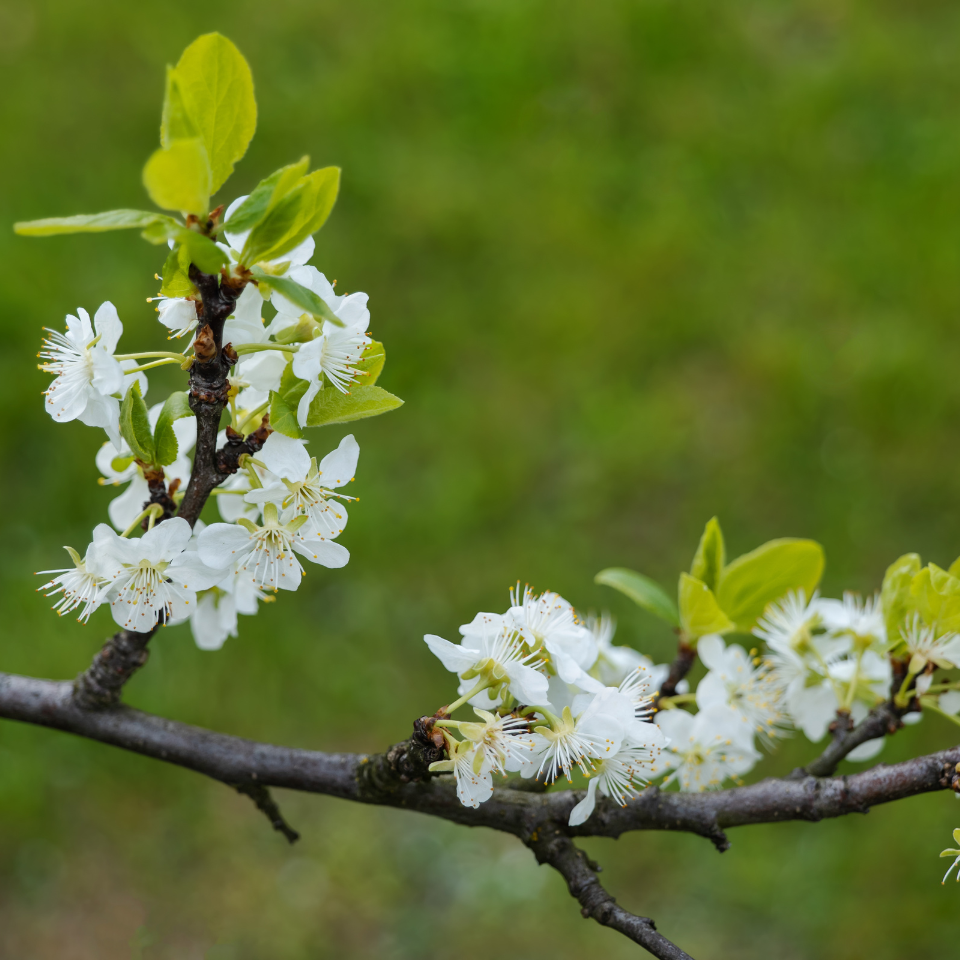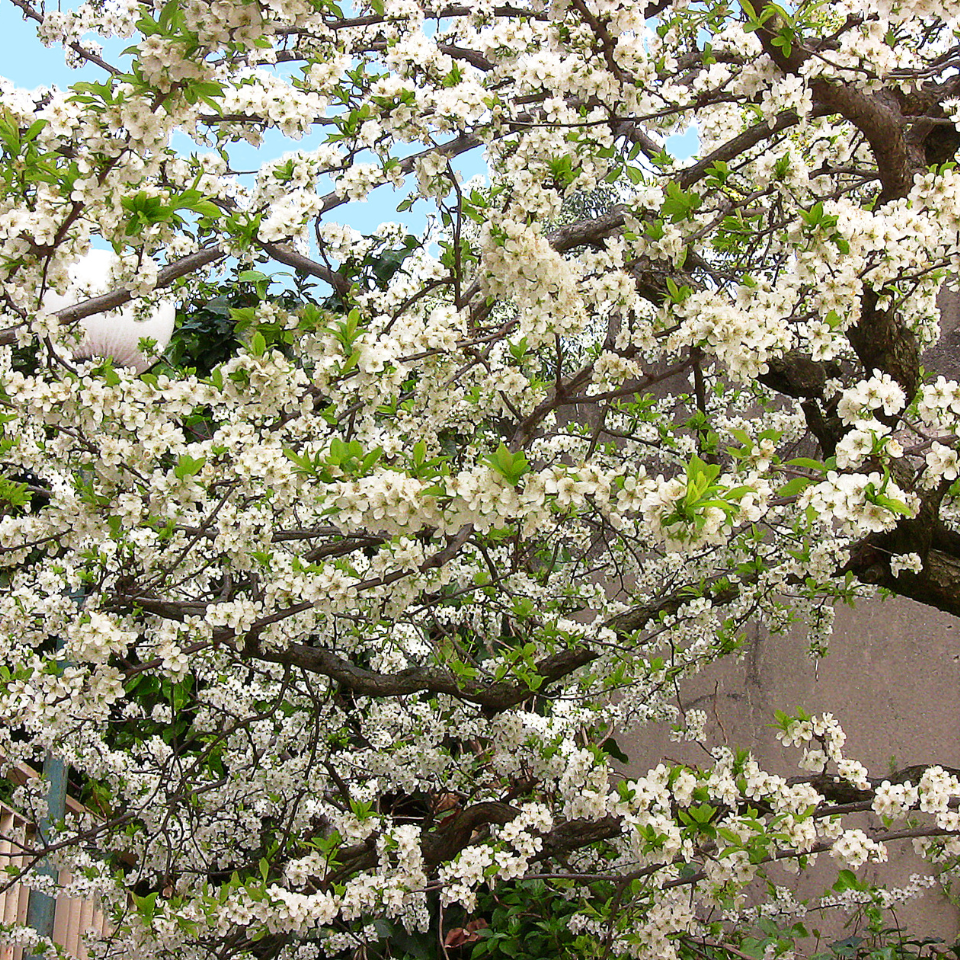European Plum Seeds (Prunus domestica)
Description:
The European Plum (Prunus domestica), also known as Common Plum, is a classic fruit-bearing tree prized for its sweet, juicy fruits and versatile uses. Originating from Europe and parts of Asia, this species has been cultivated for centuries and remains a favorite for home orchards and commercial growers. Its adaptability, ease of cultivation, and delicious fruits make it a popular choice worldwide.
Key Features:
• Tree Characteristics:
• Medium-sized deciduous tree reaching 4–10 meters in height, depending on pruning and growing conditions.
• Features a rounded crown with attractive, ovate green leaves.
• Produces beautiful white blossoms in early spring, adding ornamental value.
• Fruit Features:
• Medium to large-sized oval fruits with a smooth, waxy skin that ranges in color from deep purple to yellow or green, depending on the variety.
• The flesh is sweet, juicy, and slightly firm, encasing a single pit.
• Harvested in late summer to early autumn, depending on the region.
• Pollination and Yield:
• Some varieties are self-fertile, but planting multiple trees improves yields.
• Known for its reliable and abundant fruit production under proper care.
Cultivation Instructions:
• Climate Requirements:
• Thrives in temperate regions with cold winters for proper chilling hours.
• Requires full sun for optimal fruit production.
• Soil Preference:
• Prefers well-drained loamy or sandy soils with a pH of 6.0–7.5.
• Tolerates light clay soils but performs best in fertile, aerated ground.
• Planting Instructions:
• Sow seeds in autumn for natural stratification or cold stratify in a refrigerator for 12–16 weeks before planting in spring.
• Space trees 4–6 meters apart to allow proper canopy development.
• Watering:
• Requires consistent watering during the growing season, especially during flowering and fruiting.
• Avoid overwatering to prevent root rot.
• Pruning:
• Prune annually in late winter or early spring to shape the tree, remove dead wood, and encourage air circulation.
Uses and Benefits:
• Culinary:
• European plums are perfect for fresh consumption, baking, jams, preserves, and drying into prunes.
• Gardening:
• Ideal for home orchards, adding both fruit and ornamental value.
• Nutritional Value:
• Rich in dietary fiber, vitamins (especially vitamin C), and antioxidants.
Historical Note:
The European Plum has a long history of cultivation, dating back to Roman times. It is considered one of the ancestors of modern cultivated plums, and its versatile fruits have been a staple in traditional European cuisines for centuries.
Shipping Information:
Deodar Seeds ensures that all seeds are carefully selected and packed to maintain their freshness and viability. Seeds are shipped within India and internationally, with delivery typically within 1–2 weeks.
From Deodar Seeds Company.
Description:
The European Plum (Prunus domestica), also known as Common Plum, is a classic fruit-bearing tree prized for its sweet, juicy fruits and versatile uses. Originating from Europe and parts of Asia, this species has been cultivated for centuries and remains a favorite for home orchards and commercial growers. Its adaptability, ease of cultivation, and delicious fruits make it a popular choice worldwide.
Key Features:
• Tree Characteristics:
• Medium-sized deciduous tree reaching 4–10 meters in height, depending on pruning and growing conditions.
• Features a rounded crown with attractive, ovate green leaves.
• Produces beautiful white blossoms in early spring, adding ornamental value.
• Fruit Features:
• Medium to large-sized oval fruits with a smooth, waxy skin that ranges in color from deep purple to yellow or green, depending on the variety.
• The flesh is sweet, juicy, and slightly firm, encasing a single pit.
• Harvested in late summer to early autumn, depending on the region.
• Pollination and Yield:
• Some varieties are self-fertile, but planting multiple trees improves yields.
• Known for its reliable and abundant fruit production under proper care.
Cultivation Instructions:
• Climate Requirements:
• Thrives in temperate regions with cold winters for proper chilling hours.
• Requires full sun for optimal fruit production.
• Soil Preference:
• Prefers well-drained loamy or sandy soils with a pH of 6.0–7.5.
• Tolerates light clay soils but performs best in fertile, aerated ground.
• Planting Instructions:
• Sow seeds in autumn for natural stratification or cold stratify in a refrigerator for 12–16 weeks before planting in spring.
• Space trees 4–6 meters apart to allow proper canopy development.
• Watering:
• Requires consistent watering during the growing season, especially during flowering and fruiting.
• Avoid overwatering to prevent root rot.
• Pruning:
• Prune annually in late winter or early spring to shape the tree, remove dead wood, and encourage air circulation.
Uses and Benefits:
• Culinary:
• European plums are perfect for fresh consumption, baking, jams, preserves, and drying into prunes.
• Gardening:
• Ideal for home orchards, adding both fruit and ornamental value.
• Nutritional Value:
• Rich in dietary fiber, vitamins (especially vitamin C), and antioxidants.
Historical Note:
The European Plum has a long history of cultivation, dating back to Roman times. It is considered one of the ancestors of modern cultivated plums, and its versatile fruits have been a staple in traditional European cuisines for centuries.
Shipping Information:
Deodar Seeds ensures that all seeds are carefully selected and packed to maintain their freshness and viability. Seeds are shipped within India and internationally, with delivery typically within 1–2 weeks.
From Deodar Seeds Company.
European Plum from Himalaya - 10
- Brand: Deodar Seeds
- Product Code: FR4.1
- Availability: In Stock
₹605.00









